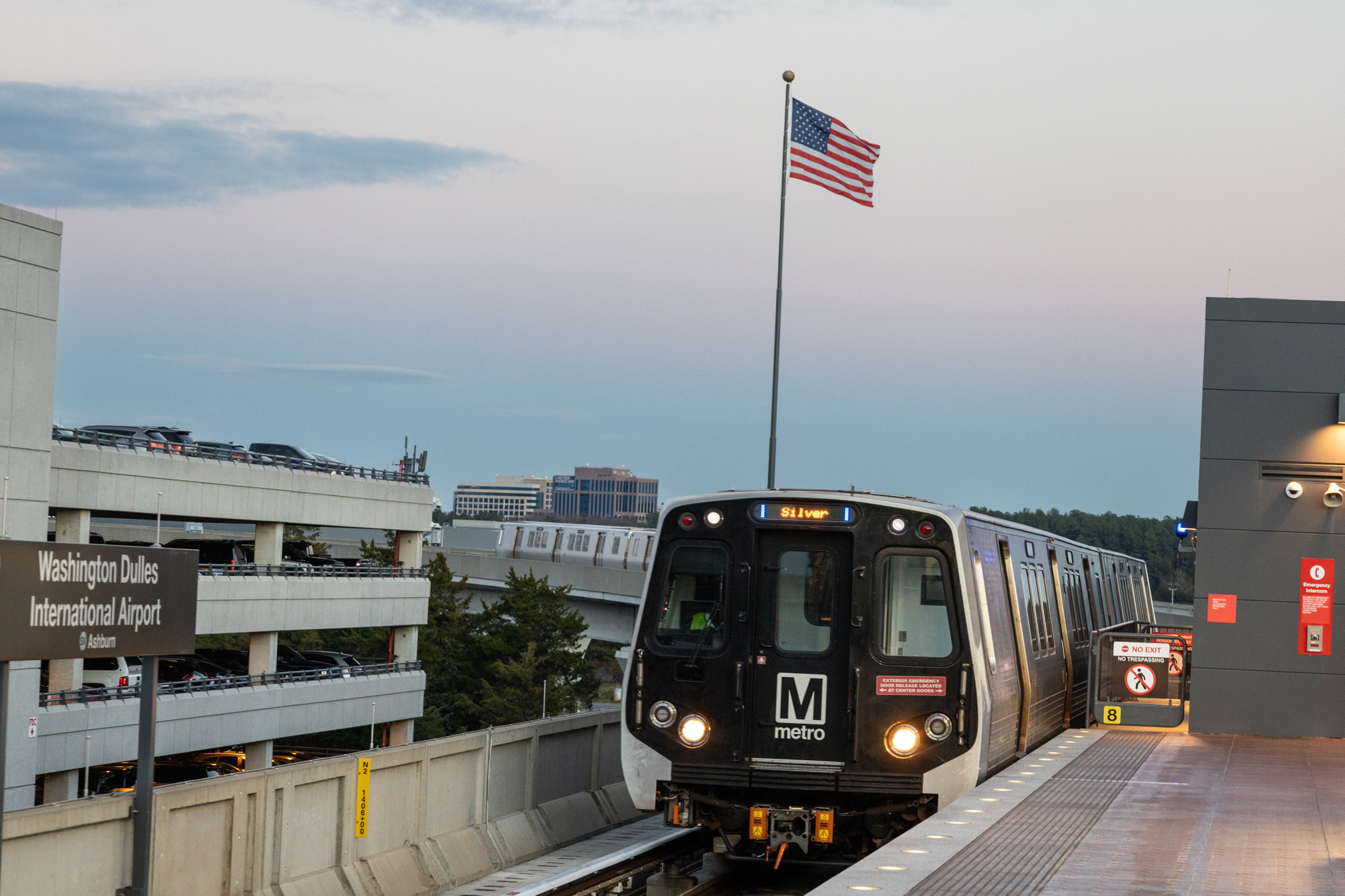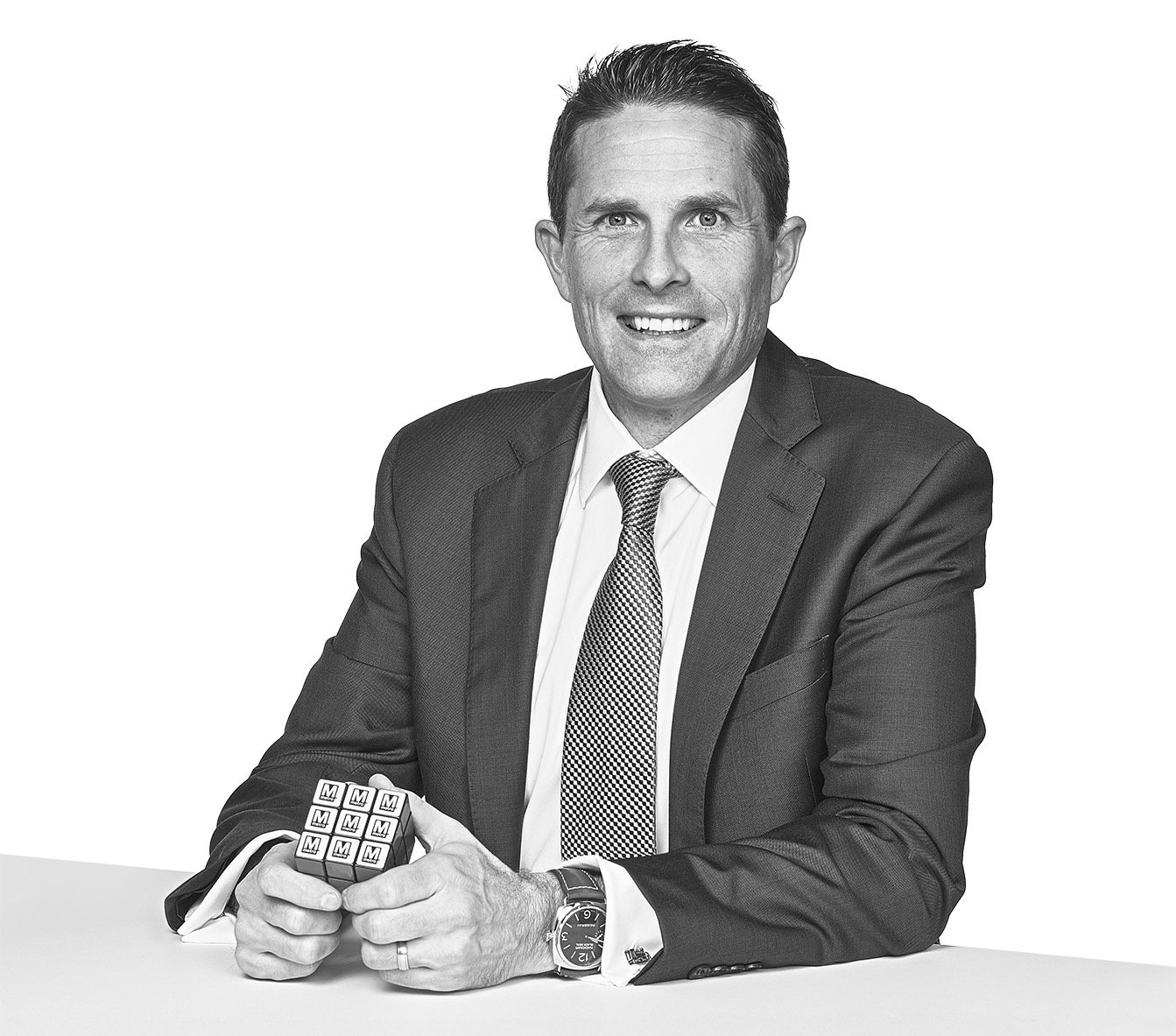Back in July, Metro celebrated Randy Clarke’s first week as its general manager by literally lighting itself on fire: A cable near the Dupont Circle station failed, causing an electrical blaze that filled tunnels with smoke and knocked out service between Farragut North and Van Ness. It was only the latest reminder of how precarious the system has become, from the pandemic-related plunge in ridership to the October 2021 derailment that resulted in a diminished rail fleet that still hasn’t fully recovered. Clarke’s predecessor at WMATA, Paul Wiedefeld, had made an earlier-than-planned exit after the revelation that Metro had let safety recertifications lapse for half of its rail operators.
Clarke, who previously ran Austin’s transit system, has enjoyed something of a honeymoon period despite Metro’s ongoing troubles. And he has already celebrated some successes, such as the completion of the Silver Line extension to Ashburn and the DC Council’s bold plan to make bus service free inside the city. Clarke recently crafted a proposed budget that would eliminate Metro’s $184 million budget gap and includes ideas such as simplifying the fare structure (no more peak fares!).
Through it all, Clarke has become a highly visible cheerleader for Metro, tweeting photos of his rides, responding to commuters’ concerns, and in general trying to turn around the organization’s culture. But really, people care much less about who’s in charge than about getting where they’re going in the smoothest possible way. “ ‘How have you performed lately?’ ” is Metro customers’ real concern, he says. “That’s fair to me.”
I was recently debating with somebody about whether you have the second- or third-most difficult job in Washington.
What are the other one or two that you were debating?
President of the United States is probably more difficult. But I don’t know if it’s harder to run Metro than to be, say, the House majority leader.
Oh, my God. I like how you leapfrogged the mayor and went right to House majority leader. Listen, I love this job and I’m very privileged to have it. I think we’ve got to be honest that it is a challenging role. But challenging jobs mean that what you do is really important to people’s lives.
Sure, Metro touches everybody in this region in one way or another.
Everyone’s like, Oh, yeah, Metro: trains and buses and MetroAccess. That’s the movement part. We’re a massive employer. This budget proposal is over $4 billion. We have an enormous impact on economic development. Four percent of all the real estate in the DMV makes up basically about 30 percent of all the tax base, and that 4 percent of the property is within half a mile of a transit station. Where Metro goes is where the economic development grows.
We have national-security implications. Special events. We obviously get people to Nats games and concerts and Caps games and Wizards. Could you imagine the inauguration happening here without Metro? Could you imagine the Marine Corps [Marathon] or Fourth of July without Metro?

I also can’t imagine another organization that more people kvetch about.
We’re held to probably the highest level of accountability of any governmental organization there is. Name another organization that gets the volume of tweets or complaints or discussion like Metro—nothing, right?
That leads to my next question: You’ve come here with the best of intentions. But some people before you in the role appeared very promising, then seemed to become overwhelmed by Metro’s structural problems. Why should people expect this time to be different?
That’s a fair question in one way, and probably not a fair question another way. What’s fair about it is “Who are you to come in here and be this person who solves all these problems?” The unfair part of that is the suggestion that everyone was overwhelmed. You just said it’s one of the hardest jobs in the region. You have a board, a public, changes in Richmond, changes in Annapolis, changes at city hall, changes to the federal government, externalities that you can’t control. It’s kind of hard to just say that the leader of this organization is solely responsible for success or failure. The public, rightfully, wants accountability. It’s really hard to explain to the public that I don’t control all of our funding. We can’t control Covid policy, we can’t control real-estate policy and zoning. That’s a long way of getting at what I hope I’ve demonstrated in my first four months: As long as I have the opportunity to do this job, I’m going to give it every single ounce of my being.
How do you think about triaging Metro’s issues that are long-term—like funding—as well as events you have to react to in the moment, like the December shootings at the Metro Center and Benning Road stations?
I’m not going to mince words: We have a societal gun-violence issue. And I think it’s fair to say, and Covid exacerbated it, we have a lack of civility in our society. We’ve increased police coverage. We’ve got camera systems that we’re working on enhancing. We’ve hired mental-health crisis-intervention specialists to be out on the system. So we are all in on trying to ensure the safest system possible for both our customers and our staff. I mean, what kind of leader would you be if you didn’t believe in that?
View this post on Instagram
That is obviously different than how you solve the larger challenges in Metro. I think that was the premise of your question, which is, yeah, we have a significant funding challenge. This has been a 50-year conversation. I have a report on my desk from 1975 that said Metro’s funding model needed to be fixed or it’s going to be a complete disaster. That was the year before the Metrorail system opened!
Metro cannot solve this on its own. We don’t have our own taxing authority and money. Ridership and fare revenue do not move the needle significantly on changing where we need to be. We need to have a very honest and transparent conversation that says we can’t afford to run the system we have today in fiscal year 2025.
It sounds like you boned up on Metro before you got here. What’s surprised you about the system as you’ve learned on the job?
We have a very committed and dedicated and passionate workforce. When you’re in the fishbowl, it is very hard to find the right level of risk. It’s very hard [when critics] say, “Why don’t you be more innovative [and] take risks on things like, say, technology?” And just cultural-mindset stuff. Sometimes we’ve created a little bit of lasagna here, for lack of a better term: Some report from, it could be 1998, said, You’re bad at X. So instead of solving X, it’s like, I’m gonna build in 20 layers of lasagna to make sure that can never happen again. That’s not a perfect analogy, so probably not the greatest quote. I want people to have a lot more imagination here at Metro, be a little more aspirational.
Are you saying innovation is a difficult goal when everyone at Metro is on defense all the time?
If you worked here for the last year and a half, you got pounded every day. Every day, you’re hearing that the organization is a disaster. I don’t care how passionate you are about a topic or how committed you are, it impacts your wanting to go to work. If everyone said Washingtonian is the worst place possible, you wouldn’t tell people you work there after a while, right? We want people to have pride in what they do.
I’ve leaned on transparency and being more proactive in my communication style. Just say what’s going on and tell people what’s wrong. They usually give you a lot of grace, because they’re humans, too. There’s a difference between making mistakes and being incompetent and malicious. There is not one person that would read this article that has never made a mistake. And if there is one out there, please tell them I’m hiring. [Laughs.] In sincerity, we make mistakes all the time. What I’m trying to tell people is if you put your hand up when you make a mistake, then we’re going to learn from that and be a learning organization. Maybe I’m a little naive, but I think the public in the last few months is appreciating Metro’s willingness to be different that way.
Do you get recognized when you’re riding the system?
Yeah. I believe I am not only the chief customer advocate, the chief accountability officer, but I’m also the chief transit promoter. I’m out there a lot. Three, four, or five days a week, I get people coming up to me on a bus or train and wanting to say hi. The weirdest part is sometimes people want to take a picture.
That wasn’t the case in Austin?
Not like here. The good thing is I haven’t gotten any reaction like someone yelling at me saying that we’re horrible. There was a little bit of, like, Oh, man, I can’t believe you’re on the train and bus. And that alone symbolizes something to me. I expect all of our team to be out on the system, being part of what we deliver.
No one’s yelled at you, but has anyone given you a pretty good suggestion?
Oh, no question. I don’t want to encourage just people to nonstop tweet me, but—
Haven’t you kind of put yourself in that position by tweeting about your rides?
Totally. And that’s okay. As long as people will be understanding that I actually have a job, too, and just can’t be on Twitter all day, right? I don’t think anyone that’s been on Twitter all day long has turned out to be successful at their job.
Saturday date nights = transit nights, this time on our friends @DCCirculator who got us around safely on time. Enjoyed meeting Mr.Lee who is a retired @wmata 🚌 operator now at Circulator. Hope you all are having a good weekend. #wmata pic.twitter.com/RtGDQ8I9Xc
— Randy Clarke (@wmataGM) January 29, 2023
You’re talking to a journalist, Randy.
Yeah, but if you only did Twitter, you couldn’t write, right?
Uhh . . . .
[Laughs.] I tried to create more of an avenue where people feel they can bring up what some here might feel was a small issue but could be actually a big issue to a customer. How it interacts with their life at 8:30 at night might seem small to us from an overall operational thing, but it’s big in how it impacts their evening. These little things we’ve been getting after pretty hard. That could be signage that’s not good at a bus stop, or lighting or an escalator or some public-safety stuff. When I’m in the system, there isn’t a day that I don’t send multiple texts with pictures for my team to work on. And they welcome it. Now a whole bunch of [Metro employees] are taking pictures.
You talked about funding as a huge issue. If you came across a magic lantern on the platform one morning and could get one wish by giving it a rub, what would you fix?
I assume you mean this professionally? Not personally, right?
I mean, it’s your wish.
If I won Powerball for, like $1.8 billion and then I just gave a billion to Metro, that would be pretty good, right?
They’d probably put up a statue of you at L’Enfant Plaza.
It’s not just about more money. I believe sources of funding are a structural issue. Every couple of years, having to go to Annapolis and Richmond and [the Wilson Building] and to the federal government is still going to be a structural challenge for the organization. We do need more funding for the services that the region wants. [But stable, consistent funding is what] creates the space for Metro to have a long duration to be strategic, to really lay out with our partners in the community what the game plan is for the next generation. Everyone wants this place to be more strategic and really be thinking big. And how do you do that if you don’t have sustainable funding?
How will you know if what you’re doing at Metro is working?
I’m feeling really good about where we are at the end of the year versus halfway through the year. Customer satisfaction has actually gone up significantly. Back in July, our customer satisfaction on rail was 66 percent. And at the close of November, it was 79 percent. Customer satisfaction does not move by 13 points in a few months if we’re not making a difference.
This article appears in the February 2023 issue of Washingtonian.

















